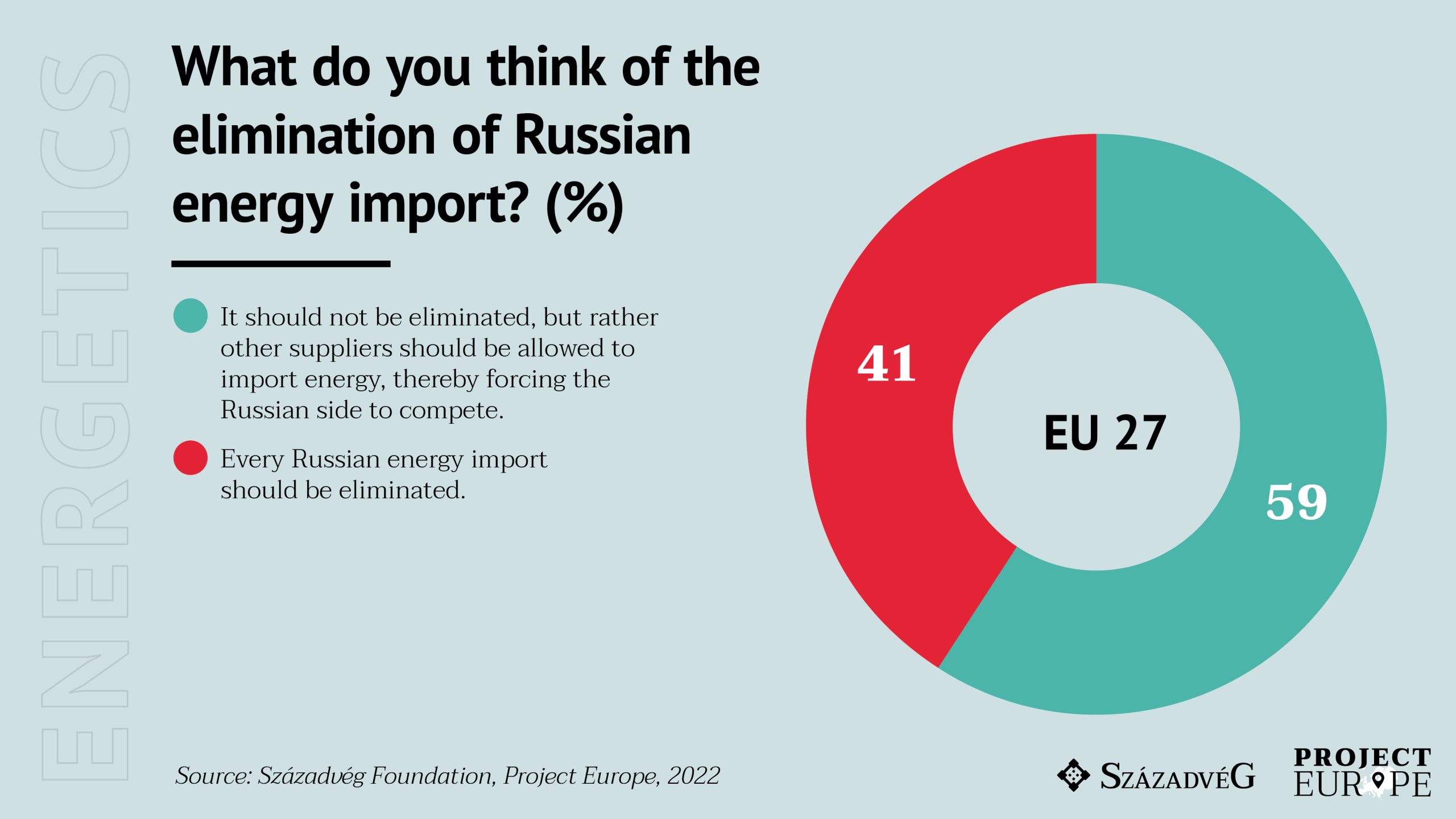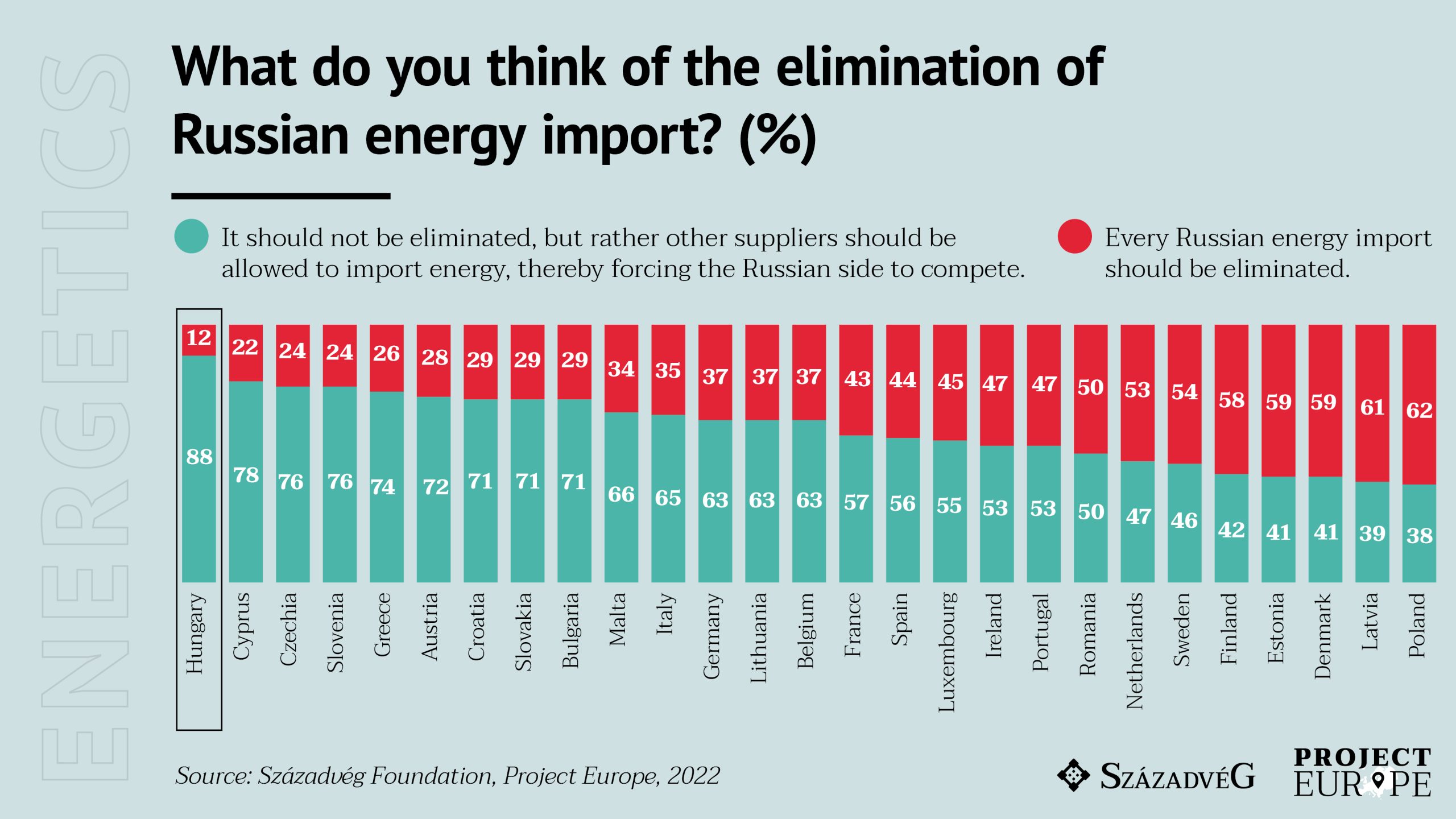The leaders of the Member States of the European Union agree that efforts should be made to reduce the energy dependence on Russia, but there is much disagreement about how to do this. Pro-sanctions countries, such as Poland or the Baltic states, believe that Russian energy supplies should be banned as soon as possible, even if this causes extreme damage to the EU. In contrast, sanction-critical countries, such as Hungary and southern Member States, are of the view that diversification, i.e. the build-up of possible substitute sources, should be worked on instead of the ban because it reduces dependence without causing significant damage to the EU economy.
A majority of Europeans agree with diversification
Across the European Union, there is majority support for diversification over sanctions. According to 59 percent of the adult population who responded, instead of eliminating supplies, other suppliers should be allowed to import energy, thereby forcing the Russian side to compete.
According to the results of the research, the percentage of those who call for the termination of Russian imports is much lower, 41 percent.
Hungary is the most pro-diversification, and ban is most strongly urged by the Poles
There are significant differences in the support for the two positions between Member States. Diversification is preferred over sanctions by the population of nineteen countries, and the position has reached at least a two-thirds majority in ten countries. The most pro-diversification Member State is Hungary, where 88 percent of respondents agree with the inclusion of new import partners. The issue divides Romania the most, where half of the respondents prefer one option or the other.
The ban on Russian energy supplies is preferred by the population of seven countries to the establishment of new trade relations: support for sanctions is the highest in Poland, 62 percent. It should be noted, however, that some of the countries supporting the ban have either already purchased small volumes of energy from Russia or have dismantled their Russian trade relations since the beginning of the war, thus, the responses may have been influenced by the intention to confirm the previous political decision.
In the first half of 2016, the Századvég Foundation conducted a public opinion poll survey covering all 28 European Union Member States, with the aim to analyse the opinions of EU citizens regarding the issues that most affect the future of the EU. In a unique way, Project 28 conducted the widest possible survey of 1,000, that is a total of 28,000 randomly selected adults in each country. Gaining an understanding of society’s sense of prosperity and mapping the population’s attitudes towards the performance of the European Union, the migration crisis and the increasing terrorism were among the most important goals of the analysis. Following the surveys in 2017, 2018 and 2019, on behalf of the government, the Századvég Foundation has been conducting the research under the name of Project Europe since 2020, which continued to reflect on the topics that most dominated the European political and social discourse.
In 2022, the aim of the survey is again to map the population’s attitude towards the most important public issues affecting our continent. In addition to society’s sense of prosperity, the performance of the European Union, the coronavirus pandemic, climate change, and the perception of the migration crisis, in line with the latest challenges affecting Europe, the dominant theme of this year’s poll has been the Russian-Ukrainian war, the energy crisis, energy supply, and family policy. In addition to the European Union Member States, the 2022 research covered the United Kingdom, Norway, Switzerland, Moldova, Albania, Kosovo, North Macedonia, Montenegro, Serbia, Turkey, and Bosnia and Herzegovina, and surveyed a total of 38,000 randomly selected adults using the CATI method between 13 October and 7 December.


